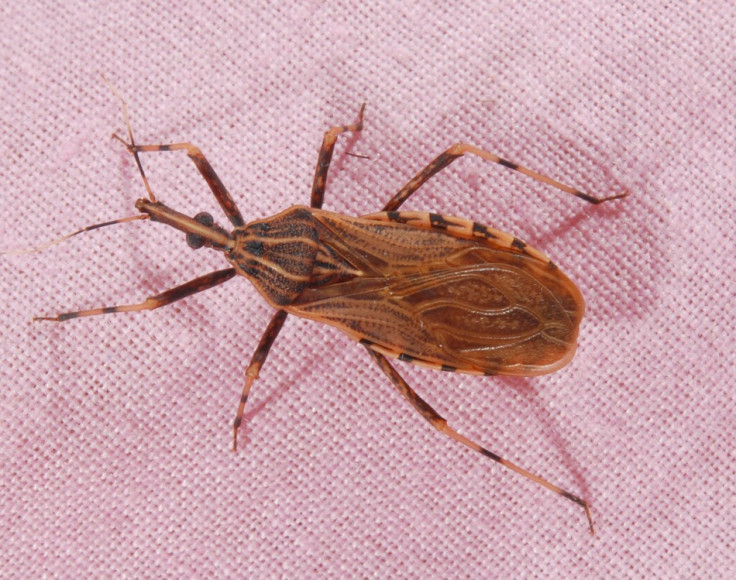Chagas disease: Dangerous 'kissing bug' spreads to at least 28 states in the US

Health officials with the Centers for Disease Control and Prevention announced that blood-sucking insects known as "kissing bugs" have been reported in at least 28 states. The bug, which usually feeds on the faces of its victims, has been reported mostly in the American South, with recent sightings in Arkansas, Arizona, Massachusetts, Tennessee and Texas.
The CDC states that the insect, called the triatomine bug, looks similar to a cockroach and is known to carry a parasite that causes Chagas disease, which can be fatal if untreated. According to TIME, the agency states that there are approximately 300,000 cases of Chagas in the US, although most were infected in Latin America.
CDC spokeswoman Amy Rowland told TIME that contracting Chagas from the kissing bug is rare and takes more than a single bite. Transmission only occurs when the insect's faeces is rubbed into a break in the skin or comes into contact with the eye.
Kissing bugs are normally found outdoors, but can also be found under beds and mattresses, the CDC reports. According to ABC News, once the parasite is in the body, it can remain hidden for years and could result in serious heart disease. "Once the bug gets to you, it goes though the body and sets up quiet housekeeping ... in particular the heart," Dr William Schaffner, an infectious disease expert at Vanderbilt University, told ABC News. "It smoulders there for many years, anywhere from 20 to 30 years."
Early acute symptoms of the disease can include fever, fatigue, body aches, headaches and rash, the CDC states. However, the vast majority of those infected will not show any symptoms. Schaffner said that the parasite's infection can be treated with medication, but that if the heart suffers tissue damage, it must be treated with supportive therapies.
Despite the spread of the kissing bug, Sarah Hamer, an assistant professor of epidemiology at Texas A&M's veterinary and biomedical school, did not appear very concerned. "It's great we are heightening our awareness — but we don't need to be terribly scared," Hamer said. Studies reportedly show that there is about one case of Chagas for every 900-4,000 contacts with the infected kissing bug, CNN reported.
© Copyright IBTimes 2025. All rights reserved.





















